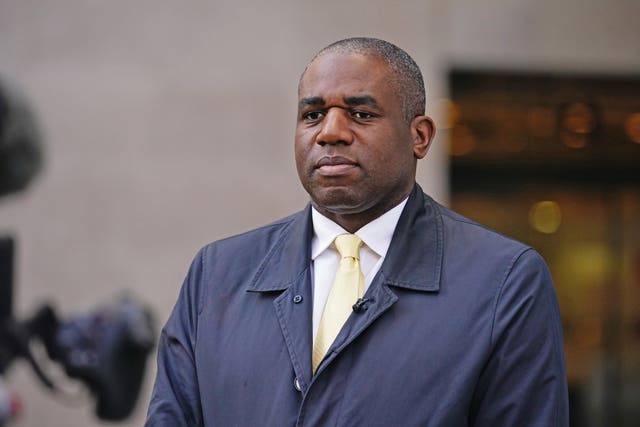Windrush 75th anniversary to be ‘diamond jubilee for modern, diverse Britain’
June 22 marks the 75-year anniversary of the first Windrush arrivals in the UK.

The 75th anniversary of the Windrush generation who helped rebuild post-war Britain will be marked later this year as a “diamond jubilee for modern, diverse Britain”, campaigners have said.
The Windrush 75 network of national organisations, including British Future charity, which aims to advance racial and cultural harmony in the UK through education, is co-ordinating events to celebrate the historic milestone.
Actor Sir Lenny Henry, historian David Olusoga and members of Parliament from both sides of the political spectrum are among those who have spoken about why it is important to reflect on the anniversary of the first arrivals on June 22.
Patrick Vernon, co-ordinator of the Windrush 75 network, said anniversary events will celebrate the “legacy” of the generation.
He said: “Windrush 75 is like a diamond jubilee for modern, diverse Britain.
“We are celebrating four generations of contribution, legacy, struggle and positive change.
“It is a moment to look to the future too, at how we address the challenges to come.”
Sir Lenny, who has written a play and television series to highlight the plight of the Windrush generation – which includes his mother Winifred – said he wanted to show “respect” for earlier “pioneers”.
The Rings of Power star said: “It’s vital this year to celebrate the courage of those Windrush pioneers 75 years ago, who gave up the life they knew to seek a better one here in Britain.
“They paved the way for those of us who have followed.
“With my one-man play August in England and upcoming TV series Three Little Birds, I want to bring their stories to wider attention in 2023.
“Big respect to those pioneers – we stand on their shoulders.”
Historian David Olusoga said the anniversary deserves to be marked in a “significant way” because of the role the Windrush generation has played in shaping British culture.
He said: “The arrival of the Windrush is a pivotal moment in black history and British history.
“We see its legacy every day, when we turn on the radio or TV, walk down the High Street or cheer for England at the World Cup.
“So, it’s important that the anniversary is marked in a significant way and that everyone is invited to take part.”

Paul Elliott, special adviser to the FA’s chair and chief executive, highlighted how several of England’s best World Cup stars come from families who migrated to the UK.
He said: “The World Cup performance of England’s footballers inspired the nation last month.
“They show why our diversity is our strength – without the parents and grandparents who moved here from overseas, there would be no Rashfords, Sakas or Bellinghams wearing the Three Lions.
“So, in 2023 football will celebrate the 75th anniversary of Windrush and the huge contribution that descendants of those first pioneers have made to our beautiful game.”

Shadow foreign secretary David Lammy said June 22 will be “an emotional day in many communities” and a “time to celebrate how migration and diversity has helped build modern Britain”.
The Labour MP added that politicians must “put pressure on the Government to finally give the victims of the Windrush scandal the compensation they deserve”.
Former minister Sajid Javid said: “For many of us who owe our lives in Britain to family who travelled here from overseas, the Windrush has a special resonance.
“That generation made a deep and lasting impact on this country and the 75th anniversary is a moment to celebrate the contribution they continue to make to our economy, health service and society.”

Sunder Katwala, director of British Future, reflected on the Windrush movement as the start of Britain’s post-war migration story.
He said: “2023 will be a special year for Britain, a year of identity. A Coronation year that ushers in a new era. One when we mark 75 years of pride in the NHS and 75 years of Windrush, the moment which symbolises the post-war migration that has shaped our society today.”
The Windrush generation refers to people who arrived in the UK between 1948 and 1971 from Caribbean countries as part of a scheme to help fill post-war labour shortages.
On June 22, 1948, the first citizens from this wave – around 500 workers from Jamaica and Trinidad and Tobago – arrived aboard the HMT Empire Windrush, which docked in Tilbury, Essex.
The Government has been heavily criticised for its handling of the Windrush movement, after many people from the generation were denied access to the NHS, work and housing despite having a legal right to be in the UK.





